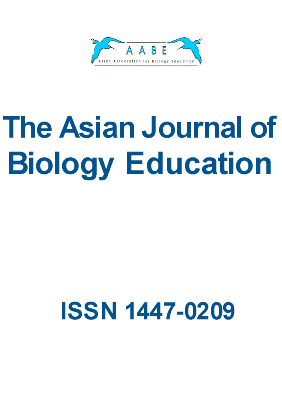Volume 15
Displaying 1-6 of 6 articles from this issue
- |<
- <
- 1
- >
- >|
-
Article type: research-article
Subject area: Biology Education
2023Volume 15 Pages 2-7
Published: October 20, 2023
Released on J-STAGE: October 21, 2023
Download PDF (212K) -
2023Volume 15 Pages 8-12
Published: October 22, 2023
Released on J-STAGE: October 22, 2023
Download PDF (858K) -
2023Volume 15 Pages 13-21
Published: October 22, 2023
Released on J-STAGE: October 22, 2023
Download PDF (710K) -
2023Volume 15 Pages 22-35
Published: October 22, 2023
Released on J-STAGE: October 22, 2023
Download PDF (342K) -
2023Volume 15 Pages 36-39
Published: October 22, 2023
Released on J-STAGE: October 22, 2023
Download PDF (494K) -
2023Volume 15 Pages 40-47
Published: October 22, 2023
Released on J-STAGE: October 22, 2023
Download PDF (1588K)
- |<
- <
- 1
- >
- >|
